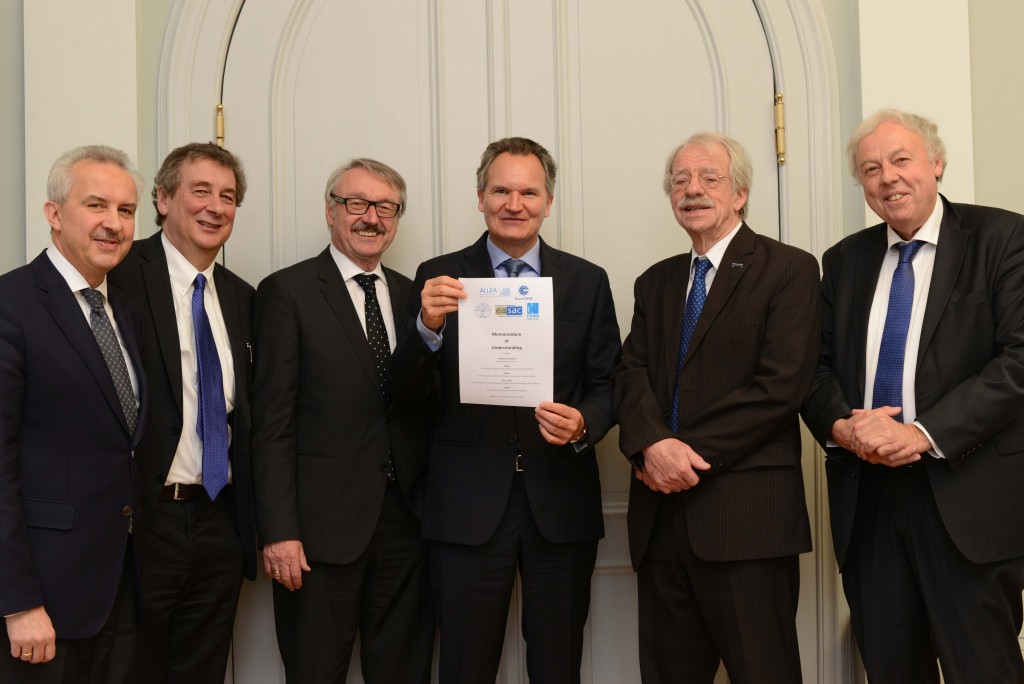
Five European academy networks (Academia Europaea, ALLEA, EASAC, Euro-CASE, and FEAM) lead the SAPEA project, representing over 100 academies from more than 40 countries across Europe. The organisations cover all scientific disciplines: science, engineering, medicine, humanities, and social sciences. The aggregation of their existing structures enables to futher advance international, transdisciplinary cooperation among academies. As part of these networks, hundreds of Fellows will contribute to the work of Scientific Advice Mechanism (SAM).
The creation of the Consortium
On 26 March 2015, the Presidents of five European academy organisations met in Berlin to sign a Memorandum of Understanding (MoU) to strengthen inter-academy cooperation in Europe. The five academy organisations declare their preparedness to collaborate when this brings added and timely value to their activities, assuring independence of processes and conclusions, and given that the work is supported by adequate additional funding.
“The Commission welcomes that the European academies are joining forces to provide independent scientific expert advice for policy making in numerous fields.”
– Robert-Jan Smits, Director-General for Research and Innovation
The Director-General of DG Research and Innovation, Robert-Jan Smits, who attended the meeting, said: “The Commission welcomes that the European academies are joining forces to provide independent scientific expert advice for policy making in numerous fields. The Commission looks forward to continue working with the Academies on this matter in the future”.

From left to right: Reinhard Hüttl, President of Euro-CASE; Dermot Kelleher, President of FEAM; Günter Stock, President of ALLEA; Robert-Jan Smits, Director-General DG Research and Innovation; Jos van der Meer, President of EASAC; Sierd Cloetingh, President of Academia Europaea | Credit: Janina Amendt
The MoU was intended to showcase the value of the academies’ expertise in the effort to provide independent science-based policy advice enhanced through a closer collaboration of the respective partners. It thus became the basis for the formation of a new consortium comprised of the aforementioned five academy organisations. At the ALLEA General Assembly in April 2015 in Lisbon, EU Commissioner for Research, Science and Innovation, Carlos Moedas confirmed that
“part of [the Commission’s] undertaking will be to ensure that Europe’s finest academics can be called upon to offer impartial advice. We cannot even begin to tackle democratic failures, violent radicalisation, or rising intolerance and extremism, without the collective learning, wisdom and foresight of the academic community. The academies have traditionally played an important role in many member states, gladly providing expert opinion to governments as necessary and academies will certainly find themselves playing a more and more significant role at European level”.

